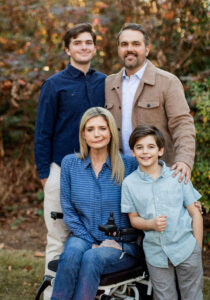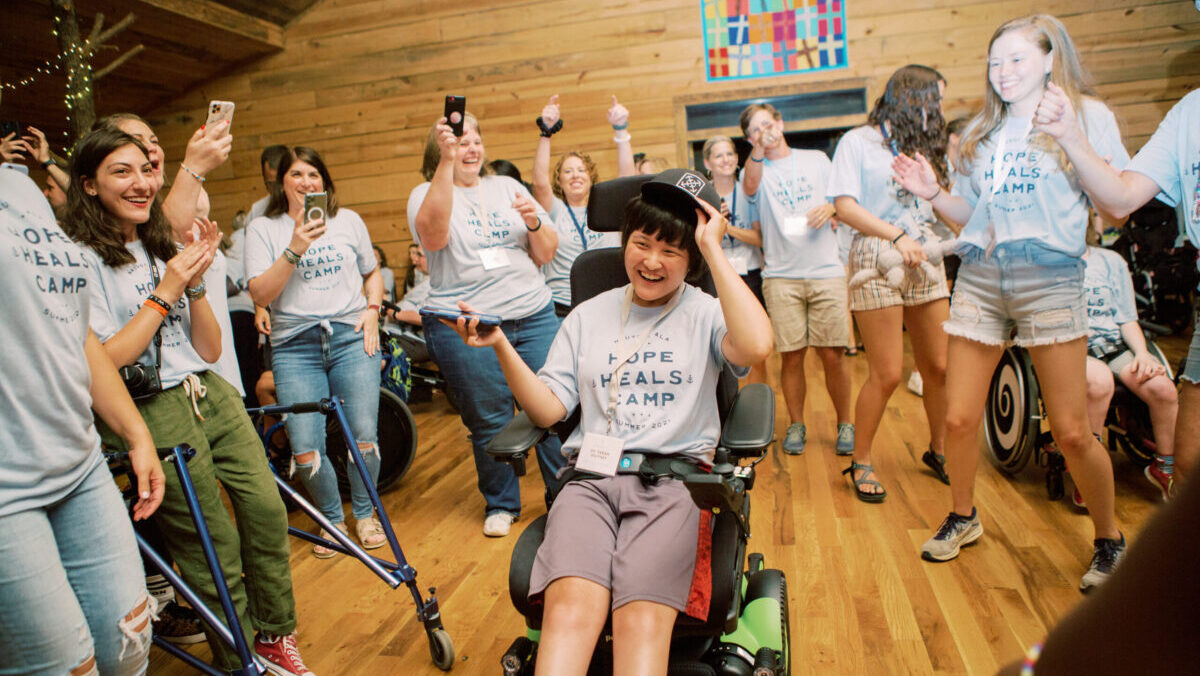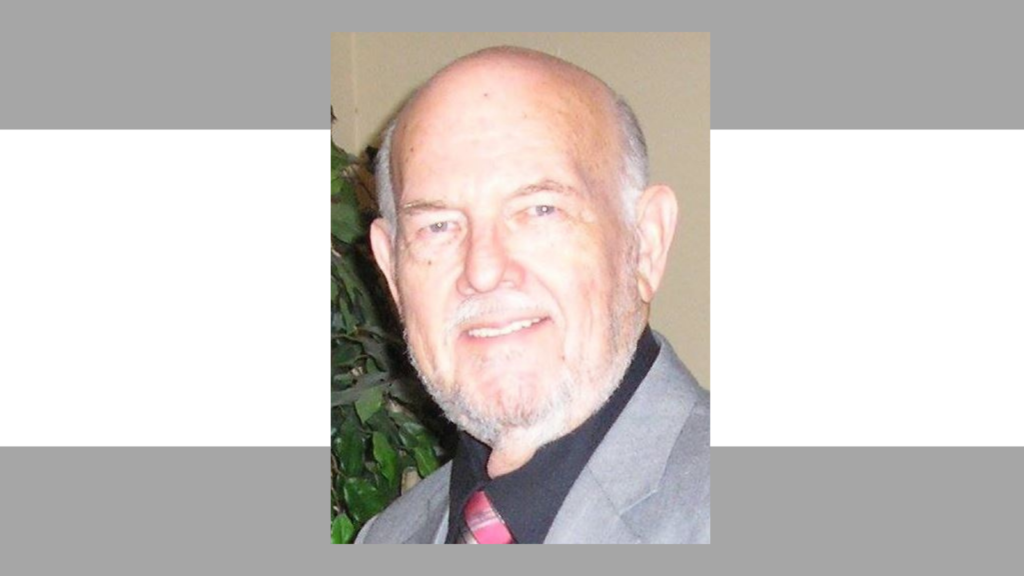Katherine Wolf exudes joy. Her laugh is contagious. Her perspective is positive. But it’s not because Katherine has had an easy, happy life. Katherine has experienced deep pain, and she faces challenges every day. Through hope rooted in Christ, Katherine has found purpose in her pain. Now, she is on a mission to help others do the same through her ministry, Hope Heals.
On April 21, 2008, at the age of 26, Katherine nearly died.
As a young wife and mother of a 6-month-old baby boy, Katherine suffered a catastrophic brain stem stroke. Miraculously, she survived a 16-hour brain surgery, 40 days in the intensive care unit, a year in neurological rehabilitation and 11 operations. She still continues her recovery to this day.
Katherine relearned to walk, talk and swallow — and she didn’t stop there. She and her husband, Jay, started Hope Heals to disrupt the myth that joy can only be found in a pain-free life.
“At Hope Heals, we’re creating spaces and resources that help people find purpose in their pain, together,” Katherine said. “We are following the example of Jesus, who proved that suffering doesn’t have to be the end of the story for us. In fact, suffering could form us into more whole and healed versions of ourselves.”

New book
Katherine and Jay have written several bestselling books, including “Hope Heals: A True Story of Overwhelming Loss and an Overcoming Love” and “Suffer Strong: How to Survive Anything by Redefining Everything.” Katherine’s next book, “Treasures in the Dark: 90 Reflections on Finding Bright Hope Hidden in the Hurting,” will be released April 9. This book is the guide Katherine wishes she’d had during her darkest times.
“When I was in the early days of recovering from my stroke, I was desperate for some kind of guide for making sense of my suffering from a trustworthy Christian voice,” she said. “My literal years of searching turned up very few resources, so I wanted to write the book I needed in the aftermath of the worst day of my life.”
This devotional-style book is made up of 90 short, readable reflections that speak very frankly on pain, death, loss and disappointment. “I’m praying my readers are able to access at least a glimmer of hope by the time they’ve finished.”
Hope Heals Camp
Katherine and Jay also had a vision to offer face-to-face hope for others with disabilities. That’s why they dreamed up Hope Heals Camp.
“We became members of the disability community almost 16 years ago, and while the experience has been unbelievably hard, we’ve been able to survive — and even thrive,” Katherine said. “But we quickly realized our family was the exception, not the rule. Our unusually supportive network of friends and family combined with an abundance of spiritual resources gave us a shot at ‘suffering strong’ rather than being completely overwhelmed by our pain.”
With that in mind, they founded the camp in 2017 to offer intergenerational weeklong retreat experiences to entire families affected by disabilities. Since then, more than 4,500 people have attended Hope Heals Camp. This summer, they’re adding an additional week to accommodate even more families. The four sessions will be held at Camp McDowell in scenic Nauvoo, Alabama.
Mend: An accessibility-forward coffee shop opening in Atlanta
The Wolfs wanted to foster the spirit of Hope Heals Camp year-round, so they dreamed up a unique type of coffee shop where people of all abilities can connect. Mend is scheduled to open in Atlanta in April.
“True hospitality has to include accessibility, so we’ve designed the space to be universally functional no matter your mobility style or sensory considerations,” Katherine said. “Think about it — once a person with disabilities ages out of the school system, their social circle often shrinks to their aging parents and paid caregivers,” Katherine said. With God’s help, the Wolfs want to change that trajectory by offering dignifying employment and a fully accessible customer experience at Mend.
The Wolfs said that being a part of the disability community has shown them what a gift people with disabilities are to the world. “God has used the story of disability to renew my mind and to redefine what it means to have worth, to surrender and to find peace outside of circumstances,” Katherine said. “The world needs more spaces to interact with people with disabilities.”
The Wolfs designed Mend and Hope Heals Camp not as charities where nondisabled people serve those with disabilities. “Our sacred spaces blur the line between who is giving and who is receiving,” Katherine said, “because we all have so much to teach one another.”
Whether they are speaking, writing or building community, the Wolfs are seeking to help others find beauty in even the most difficult parts of their stories.
“There is something profound about hope, something so meaningful when you cling to what is beyond anything you know and understand,” Katherine wrote in her first book. “When that happens deep in your head and in your heart, something shifts. Hope heals.”






Share with others: